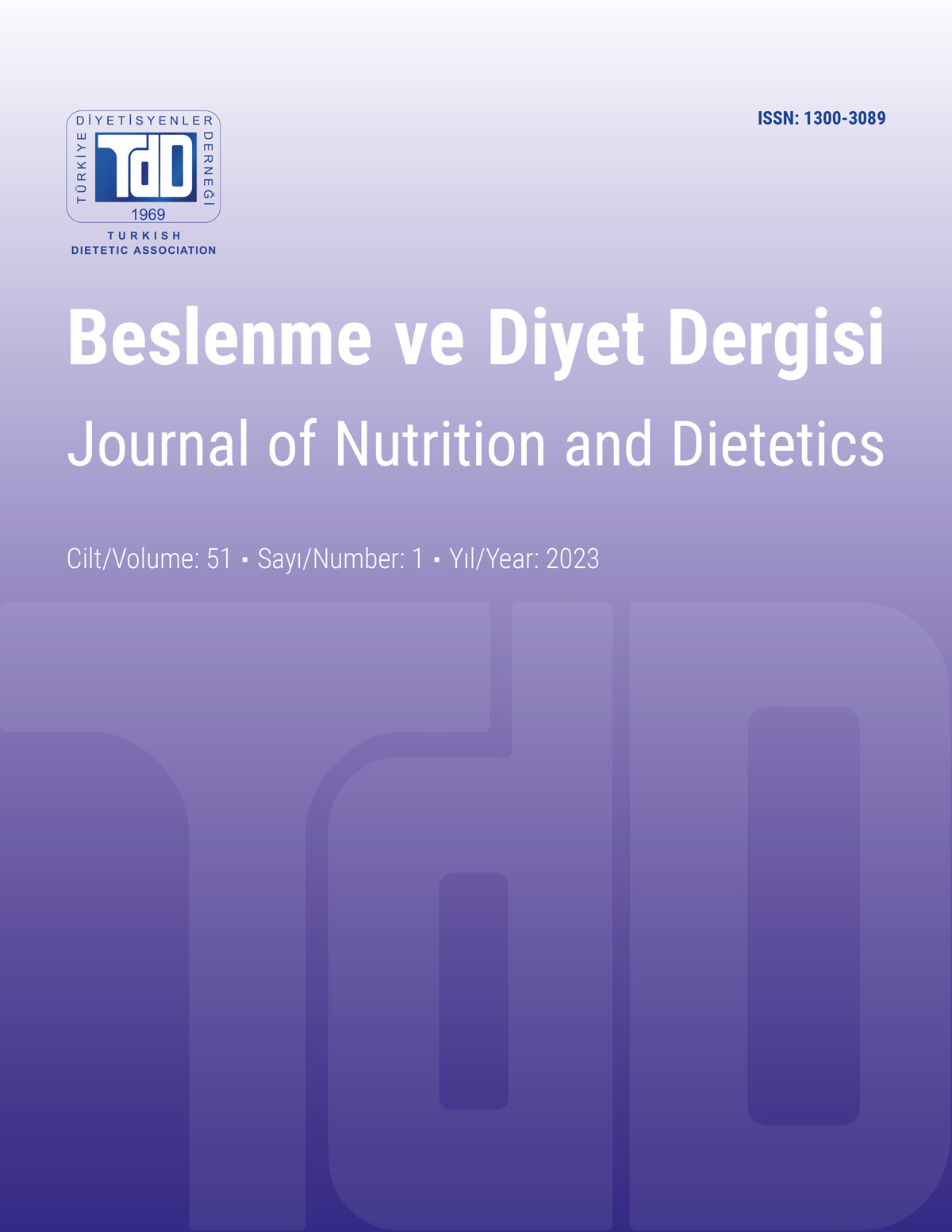Do Locus of Control Affect Anthropometric Measurements, Food Intake and Diet Quality in Adolescent Soccer Players?
DOI:
https://doi.org/10.33076/2023.BDD.1740Keywords:
Adolescent, anthropometry, diet quality, locus of control, soccerAbstract
Aim: This study was conducted to examine the effect of locus of control on anthropometric measurements, nutritional status, and diet quality in adolescent soccer players.
Subjects and Method: The study involved 72 male soccer players between the ages of 14 and 18. The researcher utilized the Rotter Locus of Control Scale face-to-face to the athletes to ascertain their locus of control. The 3-day food consumption records of athletes were gathered in order to assess their nutritional state. The Healthy Eating Index-2015 was used to assess the athletes’ dietary quality.
Results: The average score of the athletes on Rotter’s Locus of Control Scale was determined as 10.28 ± 3.15. The athletes’ ages, total weights, skeletal muscle weights, and body mass index values were found to have a positive and statistically significant weak connection with the players’ scores on the “Locus of Control”(r: 0.268; p = 0.023; p <0.05). The Total Healthy Eating Index (HEI) score was 37.16±10.14 on average, 90.3% (n=65) of the athletes had a “poor” diet, and 9.7% (n=7) had a diet quality that needed improvement. There was no statistically significant relationship between the athletes’ total HEI score and Rotter’s Locus of Control Scale score (p> 0.05). Regression analysis reveals that it is connected to skeletal muscle weight as a factor in determining the degree of the locus of control (F = 5.756; p = 0.019; p <0.05).
Conclusion: Findings related to locus of control of athletes are interesting, however, there is a need for more comprehensive studies that can determine the relationship of locus of control with anthropometric measurements and food intake.

